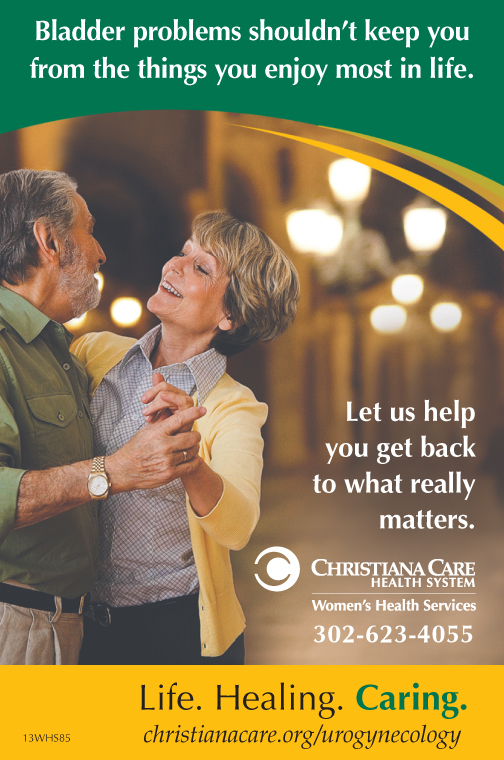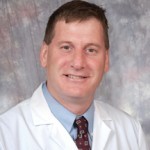Have An Overactive Bladder & Medication Didn’t Help?
Don’t Give Up
An Implant that sends the right electrical impulses to the nerves
You might have heard about medications and other therapies for improving urge incontinence and overactive bladder, which causes a frequent, urgent urge to pass urine that sometimes results in leaking.
But many women still are not aware of a highly successful, simple therapy called sacral neuromodulation which treats urge incontinence and overactive bladder by helping the nerves in the bladder to function properly.
Here’s how it works. To control the nerves of the bladder, a small device called InterStim® is inserted, through the skin, near the tailbone, also known as the sacrum. It works by sending the right nerve impulses to the nerves of the bladder, which decreases the urge to urinate.
Since approval by the FDA in 1998, it has demonstrated a good track record, providing relief in more than 70 percent of cases for women who have not achieved the results they want after trying medications, physical therapy, behavior modification and other strategies.
No more uncomfortable pads, no more staking out the nearest restroom, no more staying home because you never know when the urge to go will come. No wonder so many patients say they wish they had learned about the implant years ago.
Take it for a trial run
This device is unique in that patients can try it out to determine if it’s a good fit for them. The evaluation phase can be as short as four days or as long as two weeks.
For a brief trial run, the patient typically comes to the office and the doctor places an external neurostimulator near the hip. For a lengthier test period it is common to do the procedure in an operating room under sedation.
Most patients return to their jobs and other routines the next day. During the trial, patients must be careful when they are bathing to avoid getting the device wet. They should not do any heavy lifting.
During the evaluation phase, patients keep a diary of their urination and leakage to gauge if the device is helping. Most patients say the impact is almost immediate, often within 24 hours.
If patients’ symptoms are greatly improved or cured during the evaluation, they can go on to long-term use of InterStim® therapy, in which the device is implanted.
A life-altering therapy
InterStim® comes with a hand-held programmer that the patient can use to turn the device on and off, as well as increase or decrease the impulses.
The implant is permanent. The battery that powers it has a life span of five to seven years. Patients can check their hand-held device to check if the battery is getting low, or they will notice a return of symptoms. Battery replacement is a procedure that takes about ten minutes to perform.
The implant is truly a life-altering therapy.
To learn more or make an appointment at the Center for Urogynecology and Pelvic Reconstructive Surgery please call 302-623-4055.
Please mention you read about this treatment in The Women’s Journal.
To learn more or make an appointment,call 800-693-CARE (2273).
Please mention you read about this treatment in The Women’s Journal.
Christiana Hospital Medical Arts Pavilion 2 302-623-4055
4735 Ogletown-Stanton Road, Suite 1208, Newark, DE 19713
Christiana Care Center of Women’s Health 302-623-4055
3706 Kennett Pike, Greenville, DE 19807
Christiana Care Concord Health Center 610-361-1030
161 Wilmington-West Chester Pike, Chadds Ford, PA 19317
www.christianacare.org/urogynecology
call 302-623-4055 or visit www.christianacare.org/urogynecology
You will meet highly skilled and caring physicians who are the only urogynecologists in Delaware who have completed fellowships and are board-certified in female pelvic medicine and reconstructive surgery:
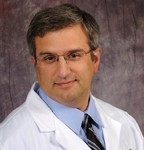 Babak Vakili, M.D., is the director of the Christiana Care Center for Urogynecology and Pelvic Surgery. Dr. Vakili completed his fellowship in female pelvic medicine and reconstructive surgery at the Louisiana State University Health Science Center.
Babak Vakili, M.D., is the director of the Christiana Care Center for Urogynecology and Pelvic Surgery. Dr. Vakili completed his fellowship in female pelvic medicine and reconstructive surgery at the Louisiana State University Health Science Center.
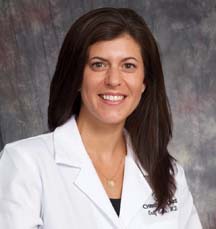
Emily K. Saks, M.D., MSCE, is a urogynecologist with the Christiana Care Center for Urogynecology and Pelvic Surgery. Dr. Saks completed her fellowship in female pelvic medicine and reconstructive surgery at the Hospital of the University of Pennsylvania.
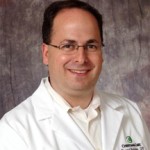
Howard B. Goldstein, D.O., MPH, is a urogynecologist with the Christiana Care Center for Urogynecology and Pelvic Surgery. Dr. Goldstein completed his fellowship in female pelvic medicine and reconstructive surgery at Cooper University Hospital in Camden, New Jersey.
Matthew Fagan, M.D., MS, is a urogynecologist with the Christiana Care Center for Urogynecology and Pelvic Surgery. Dr. Fagan completed his fellowship in female pelvic medicine and reconstructive surgery at Greater Baltimore Medical Center/University of Maryland.
